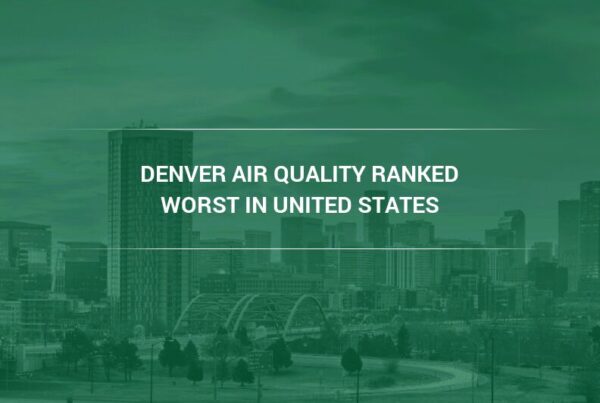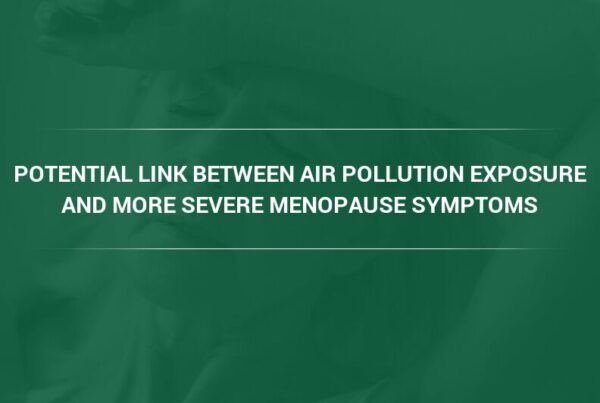Air pollution is a problem all around the globe, but developing countries face special challenges. Air pollution in developing countries is worse than in developed countries, and the problem is getting worse in many of them. What are the causes of air pollution in developing countries, and what can be done to solve these problems?
Impacts of Air Pollution in Developing Countries
According to the World Health Organization, which studies the impact of air pollution in developing countries, almost all inhabitants of big cities in middle and low-income countries deal with exceptionally high levels of air pollution.
“Approximately four out of every five people who live in cities around the world, live in an area that does not meet WHO air quality guidelines,” says Kevin Wood, Camfil USA Vice President Sales & Marketing. “This includes 98% of all people who live in poor and developing nations, and 56% of those who live in high-end, developed countries. These air pollution levels cause around three million deaths every year.” (1)
The problem seems to be getting worse, as between the years of 2008 to 2013 air pollution levels around the globe increased by 8%. Despite improvements in certain regions of the world, in general, air pollution has gotten worse, meaning that citizens in developing countries now face an even higher risk of lung cancer, heart disease, stroke, and other maladies.
“Areas of China, as well as much of India, have amongst the worst air pollution problems. The WHO database identified Zabol, Iran as the city that has the highest amount of annual particulate matter concentrations less than 2.5 µm across,” explains Wood. “These toxic particulate emissions are so small that they can penetrate into the lungs and the bloodstream, and cause lung and heart conditions. Those who already have pre-existing conditions like, asthma or lung disease, are at especially high risk of death.” (2)
Causes of Air Pollution in Developing Countries
Air pollution in developing countries tends to be worse than in developed countries because poor countries often lack the technology and resources to fight pollution. The causes of air pollution in developing countries are varied, but one of the main reasons developing countries struggle with air pollution is that their economies are still growing. Developed countries are more likely to invest in cleaner fuel sources, and technologies that limit emissions, because they have the economic resources to do so.
“Investing in alternative sources of energy, or installing emission limiting technologies like scrubbers is difficult for developing countries to do because these investments can come at the cost of economic growth,” says Camfil’s Wood. “There is substantial pressure on developing nations to keep their economy growing because most of their citizens do not have the standards of living that the average citizen in a developed nation has.” (3)
Energy production is one of the most polluting activities because much of the energy production in developed countries comes from coal. Governments of developing nations want to ensure energy for their citizens at competitive prices, and very often cheap energy production will take precedence over clean energy production.
Ensuring that the population has access to cheap and reliable energy will enhance the nation’s competitiveness, so there is further incentive to focus on providing energy as cheap as possible.
“Over the next 30 years, the most rapid expansion of economies and populations will occur in urban areas distributed throughout the poorest countries,” says Wood. “This rapid and unsustainable growth will make developing cities among the primary sources of environmental damage and air pollution. Therefore, efforts to combat air pollution and global climate change should focus upon these developing areas.” (4)
Solutions to Air Pollution in Developing Countries
Most of the sources of urban air pollution are outside of the influence of individuals and will require action by cities and national governments. To find solutions to air pollution in developing countries, it is important that nations which are in the process of heavy industrialization or will be in this process, develop air pollution standards.
Cleaner methods of transportation, better waste management, better methods of energy production, and technology to reduce emissions will need to be created by government agencies and private interests. Developing countries should pursue the reduction of emissions from industrial smokestacks, invest in renewable energy sources, prioritize rapid and communal transit, and provide options for cycling and walking in cities.
“The WHO air quality guidelines can be used as thresholds and goals for limiting air pollutants. Reducing particulate matter emissions down to 20 mcg/m³ from 70 mcg/m³ could cut the amount of pollution-related deaths by around 15%,” says Wood at Camfil. (5)
It’s important for national and city level governments to prioritize the development of healthy urban air. The improvement of air quality will cut down on health costs from air pollution related ailments, and improve life expectancy and worker productivity. Reducing air pollution in developing countries will also help protect the climate and environment in general. It’s important for developing nations to find a balance between economic growth and air quality to protect the health and standard of living of their citizens.
To find out more about the dangers of air pollution in developing countries, and to learn how you can protect yourself from air pollution, visit Camfil today for helpful information, as well as products to help improve air quality.
Media Contacts:
Lynne Laake
Camfil USA Air Filters
T: 888.599.6620,
E:Lynne.Laake@camfil.com
F: Friend Camfil USA on Facebook
T: Follow Camfil USA on Twitter
Y: Watch Camfil Videos on YouTube
Sources:
http://mashable.com/2016/05/12/air-pollution-health-who/#erDr5lqOCZqL
http://breakingenergy.com/2014/09/23/environmental-pollution-is-inevitable-in-developing-countries/
http://www.who.int/heli/risks/ehindevcoun/en/index1.html
http://who.int/mediacentre/news/releases/2016/air-pollution-rising/en/



